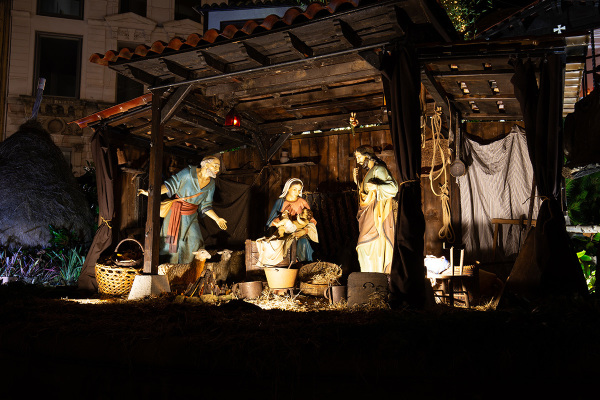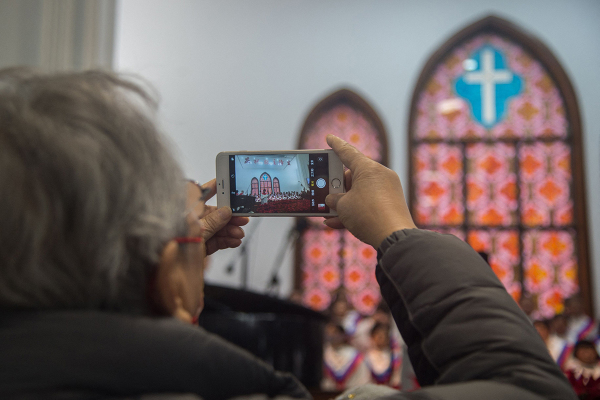Christians Don't Really Understand Suffering, Author Says
Suffering is a global and ever-present problem, yet author Palmer Chinchen doesn't believe it has been very well addressed in many Christian circles.
His new book, God Can't Sleep: Waiting for Daylight on Life's Dark Nights, looks to deepen readers' theological understanding of something that most of us simply hope to avoid altogether.
Chinchen spoke to The Christian Post Friday about how a good theology of suffering doesn't involve running from pain. Rather, it means understanding that God is present during our toughest trials. God uses those times, he said, to change and mature His people.
“I think most Christians have not thought deeply or much about the problem of pain or about affliction,” he said. “Why does a God (who has the power to not allow it to happen), why does He allow that to happen? And I think, because we haven't thought much about it, when the very worst things happen we end up ... having very trite answers."
The idea for the book came while Chinchen was living in Africa. A young girl there was burned to death when a candlelight service went wrong one Christmas Eve. As a result, both Chinchen and others began searching for answers regarding suffering.
“I had not talked much or even had what I felt were decent answers to the problem of pain,” he said, noting that he had been a pastor for 15 years before the incident occurred. “The more I read, the more I realized I didn't know much.”
As a step toward bettering his understanding of pain and suffering, Chinchen wrote curriculum for a “Theology of Suffering” class, which he taught at an African university. His experiences living and traveling around the globe have made an impact on his own approach to theology.
“The grounding for my theology doesn't just come from what I've read,” he said. “For the most part, we read Western writers, but my theology of suffering comes from my worldview that has been shaped from living about half my life in Africa, and spending a lot of my time in places like Haiti and Cuba.”
Of suffering, he says that many Americans “act like it shouldn't be there,” whereas people in other nations, who have experienced a great deal of suffering, have developed their theology more.
Chinchen and his wife lived in Liberia when civil war broke out. He said that it was probably the most Christian nation on the African continent, yet he saw and experienced suffering when some of his own friends were killed during the war.
“It was a war about anger,” he said. Yet, once it was over, it was Christian men and women who saw to it that the country began to heal and decided, in many cases, not to prosecute those who had committed horrendous crimes against their fellow countrymen.
“They decided not to prosecute the rebel soldiers ... they said 'we want to forgive' and I think it's only because of that Christian grounding that they've been able to do that.”
Dealing with suffering, he said, is a messy business.
“I definitely know we think we're immune to it. And maybe scared is the right word, because we think we can take enough precautions where we can live a pain-free life.”
Giving bike helmets to kids or adding extra airbags to cars cannot prevent all of the suffering that the world could inflict on us, he pointed out.
“If you haven't hurt yet, you know, I'm sorry to be the one to say this, you will hurt in the future.”
To see an example of how God can use suffering to transform His people, Christians should look at those who are spiritually mature, he noted.
“I can almost guarantee you that person has had probably some very deep heartbreak,” he said. “Because I think it's in those darkest [times], the ones we don't want, when God does this kind of spiritual shaping, transformation that never happens when the skies are blue and the sun is shining.”
There are two primary things that Chinchen said he hopes readers will take away from his book.
First, his goal is not to help people avoid suffering, but to help them realize that God is present with them through their suffering. Second, he hopes that those who have experienced suffering themselves will develop a “deep, biblical, godly empathy” for those who are hurting, that they might both understand them and reach out to help them.
“I don't think ... we ever intentioned ... to manipulate people to knowing God, but I certainly think they see Christ and they will see the love of God and the love of Jesus Christ by the things that we do.”
In addition to his new book, Chinchen is also the author of True Religion: Taking Pieces of Heaven to Places of Hell on Earth and is the pastor of The Grove Church in Chandler, Ariz.





















